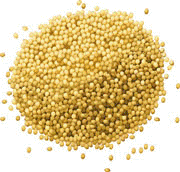International Sorghum and Millet Collaborative Research Support Program (INTSORMIL CRSP)

INTSORMIL Impacts and Bulletins
Date of this Version
1-15-2008
Document Type
Article
Citation
INTSORMIL Report No. 17, January 15, 2008
Abstract
For millennia, sorghum has been the basis of traditional African beers such as the clear beers of West Africa (dolo and pito) and the opaque beers of southern Africa. These beers are part of the African tradition and remain very popular but today Africans also enjoy lager and stout beers. These beers, of European origin, use barley as their major ingredient. This presents a major problem as barley is a temperate cereal and the African climate is unsuitable for cultivation. Thus, barley grain or barley malt must be imported which requires the use of valuable foreign exchange and increases the price of the beer beyond the reach of most Africans. Importation also disadvantages local farmers as it denies them potential markets.
In the late 1980s, the Nigerian government briefl y banned the importation of cereal grains like barley and wheat with the aims of saving foreign exchange and forcing brewers and bakers to use locally grown grains. With much ingenuity, the brewing companies in Nigeria, were able to use sorghum to successfully brew their lager and stout beers. Despite the cereal importation ban having been rescinded for many years, sorghum has continued to be the cereal ingredient of choice for brewing because of its cost advantage. This development has had major economic benefi ts. Sorghum varieties with good brewing properties are grown under contract bringing guaranteed income to farmers. In addition, a large-scale sorghum malting industry has been developed. Not only is the sorghum malt used for brewing beer, it is also used as a major ingredient in hot and cold non-alcoholic malt based beverages, which are very popular across Africa.

